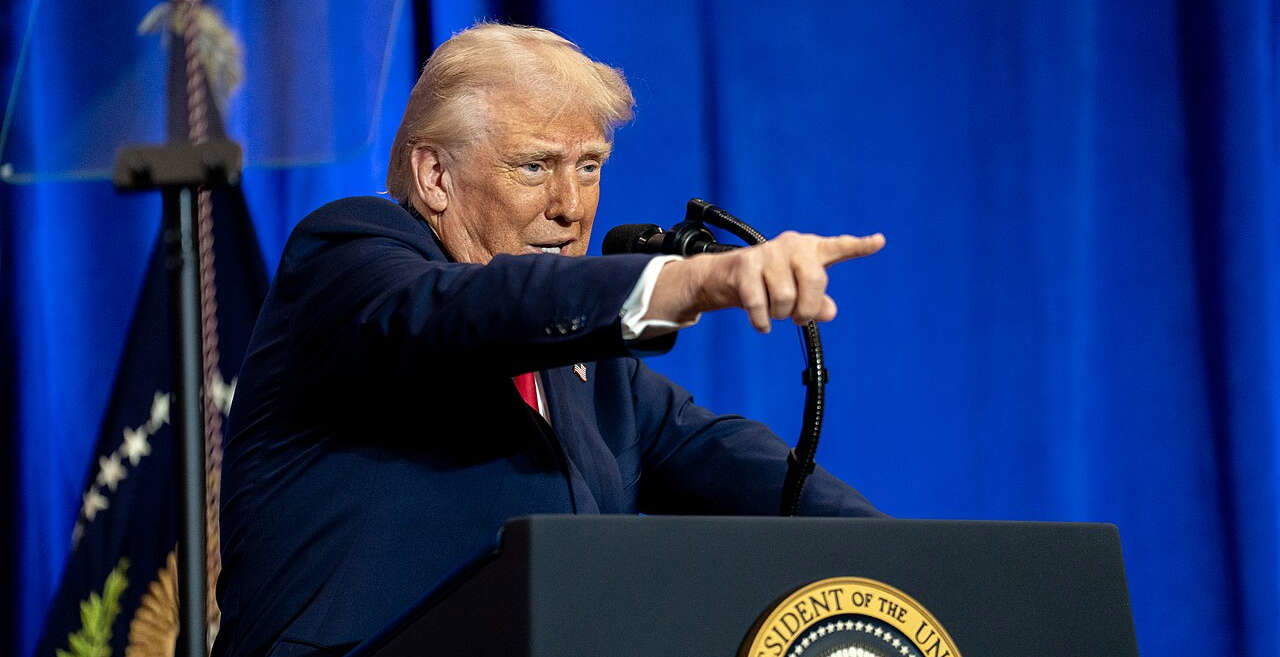In the United States, attorneys general from as many as twenty-one states have sued President Donald Trump and other officials in his administration over the dismantling of a number of federal agencies, including theInstitute of Museum and Library Services (IMLS), that were eliminated or decimated as a result of his March 14 executive order, the one dubbed “the Closure Order,” which mandates the reduction of agencies deemed “unnecessary elements of the federal bureaucracy.” Among the officials sued is the institute’s current director, Keith Soderling. The 69-page lawsuit was filed last April 4 in Rhode Island federal court. Moving it are the attorneys general of Rhode Island, New York, Hawaii, Arizona, California, Colorado, Connecticut, Delaware, Illinois, Maine, Maryland, Massachusetts, Michigan, Minnesota, Nevada, New Jersey, New Mexico, Oregon, Vermont, Washington and Wisconsin.
According to prosecutors, Trump’s executive order would be unconstitutional, and in particular would violate the separation of powers enshrined in the Constitution, since the agencies that the order is intended to close are created and funded by Congress (the U.S. Parliament), so the president should not have the power to close them at will.
As for the IMLS, the prosecutors note in their lawsuit that spending to operate the agency constitutes a mere 0.0046 percent of the federal budget, an expense thus deemed minuscule in relation to the fact that the institution “provides critical resources for libraries and museums throughout the United States.” And as a result, states rely on the IMLS to fund museums and libraries.

Trump’s Closure Order, the executive order titled “Continuing the reduction of the federal bureaucracy,” mandates the elimination of non-statutory components and functions of certain entities consistent with the law: these entities, the order states, will specifically be required to reduce their activities to the performance of their statutory functions and associated personnel to the minimum presence and functions required by law. These entities are the Federal Mediation and Conciliation Service, the United States Agency for Global Media, the Woodrow Wilson International Center for Scholars in the Smithsonian Institution, the Institute of Museum and Library Services, the United States Interagency Council on Homelessness, the Community Development Financial Institutions Fund, and the Minority Business Development Agency.
The order requires the heads of each of these institutions to prepare a budget and report confirming full compliance with the executive order and explaining to the director of the Office of Management and Budget which components or functions of the institution, if any, are required by law, and to what extent. The director of the Office of Management and Budget, after receiving the reports, should reject funding requests for such entities to the extent that they are inconsistent with the executive order. In essence, what Trump is therefore asking for is to reduce the functions of the aforementioned agencies to the statutory minimum . And this means, in effect, decimating funds and personnel of such agencies. “Eliminating the only federal agency dedicated to supporting museums directly undermines the will of the people and the vital role museums play in American society,” the American Alliance of Museums declared last month. “The elimination of IMLS is a devastating blow to cultural institutions, especially those in disadvantaged communities that depend on federal support,” said Julie Trébault, director of the organization Artists at Risk Connection, in a note. “This decision undermines access to the arts, disproportionately harming marginalized groups and stifling expressive diversity. It also reflects a troubling trend of diminishing support for the arts and humanities, devaluing cultural institutions and undermining the livelihoods of those who support them. This is a direct attack on artistic freedom and a detriment to future generations.” According to theAmerican Library Association, “the Trump administration’s executive order is cutting off the knees of America’s most beloved and trusted institutions and the staff and services they provide.”
As early as last April 1, IMLS employees were placed on administrative leave, and staff access to the institution’s systems and offices was suspended. “Without staff,” the Association of Science and Technology Centers wrote in a memo a few days ago, “there is considerable doubt about how the IMLS can fulfill its statutory obligations and great uncertainty about the future of community programs supported by the agency. Museums and libraries are left in the lurch. Make sure your elected representatives are aware of the impact of federal funding on museums in your community and stay tuned for more information on what steps you can take.”
The attorneys general’s lawsuit also lists the benefits the IMLS brings to the U.S. library and museum system. Meanwhile, the institute administers several library and museum grant programs, which include Native American and Native Hawaiian-focused library services grants, which are awarded to communities in order to establish, sustain and improve library services. Then there are the grants programs for museums, which include the “Museums for America” grants, which support the capacity of individual museums to serve the public through programs, exhibitions, professional development, and collections management.
There are the Native American and Native Hawaiian Museum Services grants, which support Native tribes and organizations that primarily serve and represent Native groups, supporting a variety of projects, such as workforce development and community engagement. The IMLS has also developed several initiatives to support libraries and museums: in 2014, it launched Museums for All, a national access initiative under which economically disadvantaged visitors are eligible for substantial discounts or free admission to more than 1,400 museums across the United States, or InformationLiteracy.gov, a website designed for museums and libraries to develop users’ information literacy. In FY2024, IMLS distributed $180,000,000 to libraries across the United States through its Grants to States program; $31,050,000 in other competitive library grant programs; and $55,450,000 to support museums across the United States. Of the remaining appropriations, the Institute spent $5,650,000 on research and evaluation and $22,650,000 on its administration.

The Trump administration, the attorneys general say in the lawsuit, “cannot dismantle federal agencies in this manner.” The executive order and the actions taken to implement it, according to the prosecutors, are illegal in multiple respects. First, they say, the agencies are ordered to take measures that, on the face of it, “are arbitrary and capricious. It orders the named agencies to categorically abandon each of their discretionary functions, programs, and offices and to reduce their statutory programs to the bare minimum, without weighing the costs and benefits of those programs, taking into account the reliance interests they have created, evaluating alternatives, or otherwise engaging in reasoned analysis.” Second, “by stripping these agencies far beyond their limits, the Administration has violated congressional directives. All agencies subject to executive order ono were established by Congress and provided with a detailed set of statutory obligations.” By seeking to dismantle these agencies, Trump and his officials would go on to eliminate many of the programs that the agencies are required by law to carry out. Moreover, the day after the executive order was issued, Congress itself passed and the president signed into law a bill appropriating tens or hundreds of millions of dollars for each of these agencies. These appropriations allow the agencies to continue operating at full capacity until the end of the fiscal year. The executive branch therefore cannot refuse to spend those funds by reducing agency staffing to the bare minimum, closing most of their offices and programs, and refusing to use or disburse the money appropriated by Congress, prosecutors say.
Finally, “if the President disagrees with Congress’s decision to support the nation’s libraries and museums and to allow peaceful mediation of labor disputes,” the prosecutors say, “he is free to call for legislation abolishing the agencies that perform these and many other vital functions. One option that our Constitution does not grant the President is to personally shut down the agencies, in violation of the administrative procedures Congress has required him to follow, the appropriations Congress has directed him to spend, and the separation of powers that every official in our government is sworn to respect. Accordingly, the executive order should be declared unlawful, and the actions of the defendants implementing that unlawful order should be reversed.”
 |
| US, attorneys general of 21 states sue Trump over dismantling of museum board |
Warning: the translation into English of the original Italian article was created using automatic tools. We undertake to review all articles, but we do not guarantee the total absence of inaccuracies in the translation due to the program. You can find the original by clicking on the ITA button. If you find any mistake,please contact us.